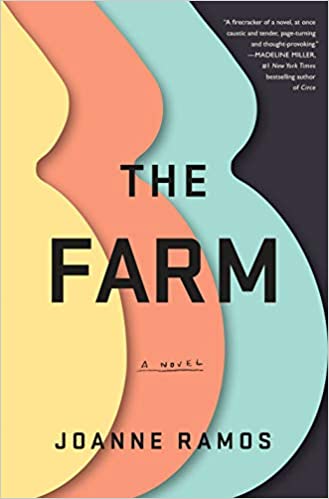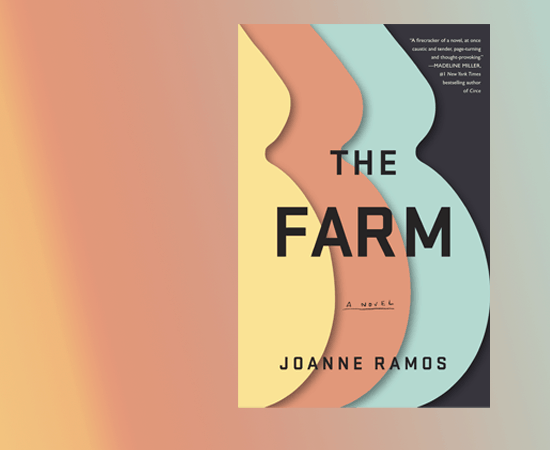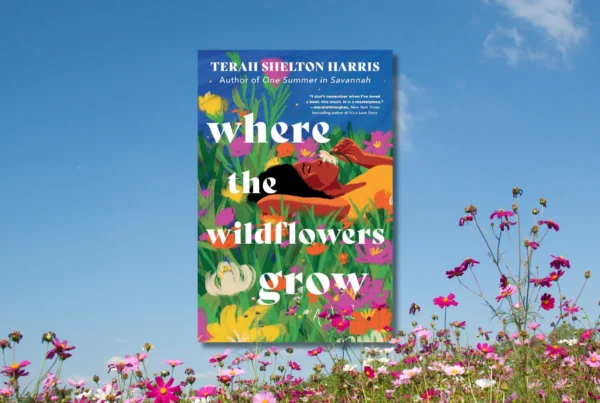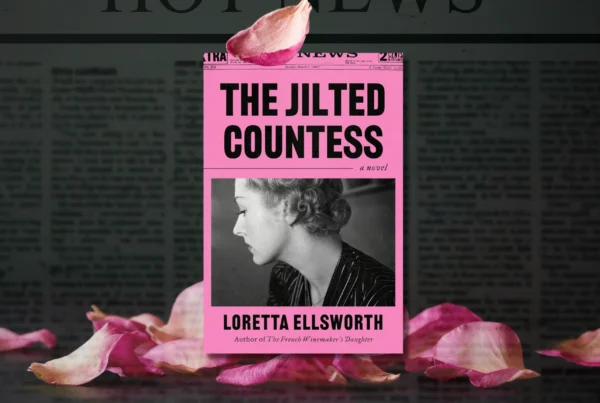The Farm by Joanne Ramos
The catch… you must stay on the premises and be separated from your family and friends for nine months while you are pregnant with a baby that doesn’t belong to you.
In this stunning debut novel, The Farm (Random House), female-centric and slightly dystopian (will be appealing to fans of The Handmaid’s Tale), author Joanne Ramos creates Golden Oaks, a secluded, country club atmosphere in Hudson Valley, NY where mostly foreign women are bearing children for elite clients who are not able to get pregnant or who choose not to.
Jane, a young, single Filipina mom with an infant, no husband and no secure place to live, decides to leave her own baby with her cousin, Ate, and take a job at Golden Oaks, where she will make enough money to better her life. She is chosen to be a Host, living in a luxury house in the middle of the countryside where her only job is to rest and keep the baby inside her healthy. Nine months is a long time to be separated from your family and as time goes on, Jane starts to question the value of that big paycheck versus her sacrifices associated with being away. She is worried about her young daughter and her cousin and is unsure the money alone is an adequate tradeoff for the painful separation and the missing of milestones.
Joanne Ramos takes a look at class status; what poor women will give up to ultimately improve their lives, and what wealthy women give up to avoid inconvenience. How much is worth sacrificing for the American Dream? This is a thought-provoking, emotionally charged novel I highly recommend!
The Farm is part of the Bedside Reading program where books are placed on the nightstand at 5-star luxury and boutique hotels.
Q & A With Joanne Ramos
Q: How did you come up with the idea for a novel centered on a surrogacy farm and do you know anyone that ever worked at one?
A. When I finally dared to commit to writing a book, a childhood dream I’d deferred for decades, I was already forty. Certain ideas had obsessed me for much of my life but finding a way into them—finding the right story to contain them and, also, allow them room to breathe—was difficult. I spent well over a year writing short stories, flash-fiction pieces and “first chapters” of stillborn novels. It was an exercise in persistence and, also, faith. Then one day, when reading my husband’s Wall Street Journal, I happened upon a snippet of an article about a surrogacy facility in India. The what-ifs began swirling in my mind almost immediately, and The Farm began to take shape.
Q: In this country do you see Filipina women experiencing economic and social challenges and in general struggling more than white women? And if so, in what way?
A. I don’t think you can really generalize in this way. I know Filipinas who struggle and those who lead cushy lives, and the same goes for white women. I think new immigrants to this country—and they come in all races and colors—do face challenges that ensconced Americans do not. I think domestic workers occupy a strange netherworld where they work in the intimacy of someone’s home and are often hailed as “part of the family”—but of course, they aren’t. That’s a difficult line to balance every day, and by and large, domestic workers don’t enjoy the protections that other workers in this country do. And of course, racism exists—here and everywhere.
Q: In The Farm, we see women of different social classes and even in the same class using each other to get ahead. With the #MeToo movement, it generally seems as if most women are outwardly supporting all women across dividing lines. Do you think the situation in your novel is closer to reality? Do you believe women stand by their children first, then other women second?
A. Women, like men, have conflicting needs, desires and loyalties which they try their best to balance. Sometimes they need to compromise; some compromises are betrayals, depending on which side you sit on. Even within the #MeToo movement, you see divisions—women who feel #MeToo has gone too far, women who feel it has not gone far enough, women who can relate and women who can’t, women who are changing their minds because of it.
Q: The influence men have on the women in The Farm seems nonexistent. Why did you decide not to include men in the storyline?
A. I didn’t exclude men from The Farm consciously. The book started with Jane and Ate. Their voices came first. All the caregivers I happen to know well are women, and almost all of them are raising their children on their own—the fathers are absent. So, in this way, Jane and Ate’s stories reflect the reality I know. Of course, the Hosts are women, and it made sense to me that the person running Golden Oaks would be a woman. The decision was not one made “on-high”, but an organic development.
Q: Female inequality is a subject that is underlying throughout your novel. But the women considered to be the lowest on the totem pole also have the greatest power, the ability to bear a child. You could have gone a different way in the novel, giving the pregnant women the upper hand. Why choose to create a world that diminishes the unique and valuable aspect of womanhood?
A. I don’t think that motherhood or pregnancy is diminished in The Farm at all! In fact, they are central to the book. The reality is, though, that the power dynamics of the world are not built around motherhood and pregnancy. In fact, for most of history, and in many parts of the world still, the opposite is true.
Q: How long did it take you to write this novel?
A. If you count the year and a half when I wrote in the dark, trying unsuccessfully to find a way “into” the themes that mattered to me, it took around five years. Once I came upon the idea of setting the action in a luxury surrogacy facility, the book took three and a half years to write and edit.
Q: What are you working on now?
A. I have some seedlings of ideas for a second book, but nothing coherent enough to discuss.
Q: What are the last three great books you read and what is on your nightstand now?
The History of Love by Nicole Krauss
Essential Essays by Adrienne Rich
Hold Still by Sally Mann
On my nightstand: Forest Dark by Nicole Krauss; Citizen: An American Lyric by Claudia Rankine; The Order of Time by Carlo Rovelli; Saltwater by Jessica Andrews
Buy this Book!
Amazon




